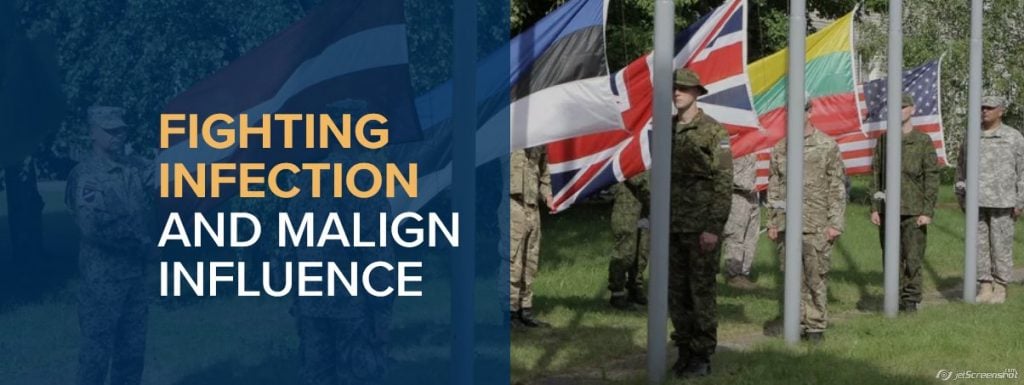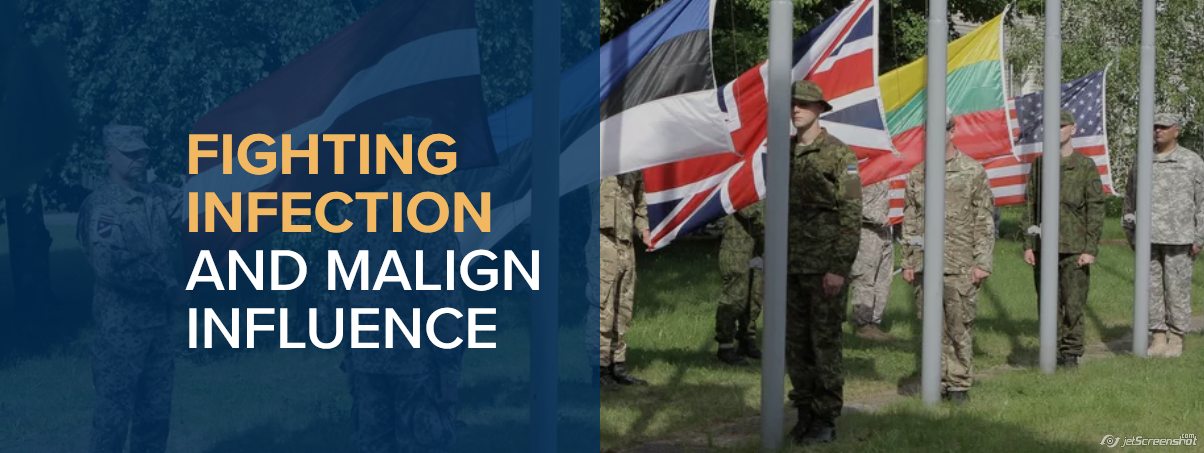
By Réka Szemerkényi, for CEPA
Past week’s CEPA webinar with the Baltic ambassadors to the United States highlighted the wider impact of the coronavirus pandemic on regional cooperation, the EU, and transatlantic security. The participants were Jonatan Vseviov (Estonia), Māris Selga (Latvia) and Rolandas Kriščiūnas (Lithuania). The following are the highlights of that conversation, condensed and paraphrased for clarity.
The crisis is common. The virus does not discriminate between countries or recognize national borders. Hence the more coordinated our response, the more effective it will be.
But effectiveness is not the only criteria. Fundamental values matter too — and more. The challenge is all but unimaginable. However, that does not mean sacrificing our lifestyle, values, freedoms, and constitutional order. Indeed, we should value these more — and strengthen them. Democracies do work more slowly than dictatorships; our national and international decision-making has been slower than our citizens might like. But we come out of crises stronger than we go into them. We should see the crisis like an exercise: it tests our institutions, procedures, and decision-making, reveals shortcomings, and helps us learn to do better. The gains we make in cohesion, connectivity, and resilience through our responses will be of lasting benefit. This pandemic may be the first global crisis of its kind, but it will not be the last. Nor should we shift our national security priorities—the pressure of new problems does not mean that old ones vanished.
We must acknowledge that the immediate impact has in some cases been negative. The temporary closure of the Polish border reminded the Baltic states of the importance of connectivity and mobility. There are important lessons to learn from the mistakes committed, but it is also important to remember that the established regional communication channels remained functional and were used effectively. Ties between the Lithuanian and Polish authorities, for example, were never broken. Ministers of Foreign Affairs worked together to find an efficient solution to the problem of Baltic citizens stranded in Germany. The unfortunate initial reactions also highlighted how special and valuable is the relationship between the three Baltic states. This realization will serve us well in future crises. Efforts such as the Three Seas Initiative (TSI) to enhance infrastructure and other links in the smaller and larger neighborhood have gained added importance.
The European Union and NATO should be more effective in communicating what they do to support our countries. But criticism overlooks the essential positive steps that the EU, for example, has taken. The External Action Service has proven particularly active and helpful in the repatriation of EU citizens, especially for the smaller EU countries, from remote parts of the world. This was very well received in the Baltic countries.
The crisis has highlighted the dangers of dis- and misinformation — something that the Baltic states are no strangers to. We saw this before this crisis, we are seeing it during this crisis, and we will certainly see it after the crisis. Exaggerated descriptions of Russian and Chinese help, and overly critical characterizations of national, EU, and NATO responses, are ammunition in this information war. We have seen attempts to portray NATO soldiers as carriers of the virus, and to claim that NATO military exercises have a higher priority than public health. Confident responses from the authorities and a strong civil society are key in responding to attempts to distract the public and distort its vision.
We should remember that we face efforts to undermine the West’s unity and the cohesion of our institutions, and to sow the seeds of mistrust between our countries, using all possible means, including propaganda. And we have a message to those spreading the misinformation. Do not underestimate our societies, the cohesion of our people, of our alliance, of our institutions in the EU, and most importantly, the ability of our public to understand and recognize propaganda. Our countries know who our friends are, and this cannot be changed by spreading misinformation. Those who underestimate the power of our values and the strength of our societies are making a huge mistake.
By Réka Szemerkényi, for CEPA
Réka Szemerkényi is executive vice president of the Center for European Policy Analysis (CEPA). From 2015 to 2017, Szemerkényi was Hungary’s first woman ambassador to the United States. Before this, she was chief advisor in foreign and security policy to the prime minister of Hungary (2011-15); state secretary for foreign and security policy in the prime minister’s office (1998-2002) and senior advisor to the state secretary in the Ministry of Defense (1991-94), at the time of Hungary’s efforts to join NATO and later the Kosovo war in the Balkans.
Common Crisis is a CEPA analytical series on the implications of COVID-19 for the transatlantic relationship. All opinions are those of the author and do not necessarily represent the position or views of the institutions they represent or the Center for European Policy Analysis.





